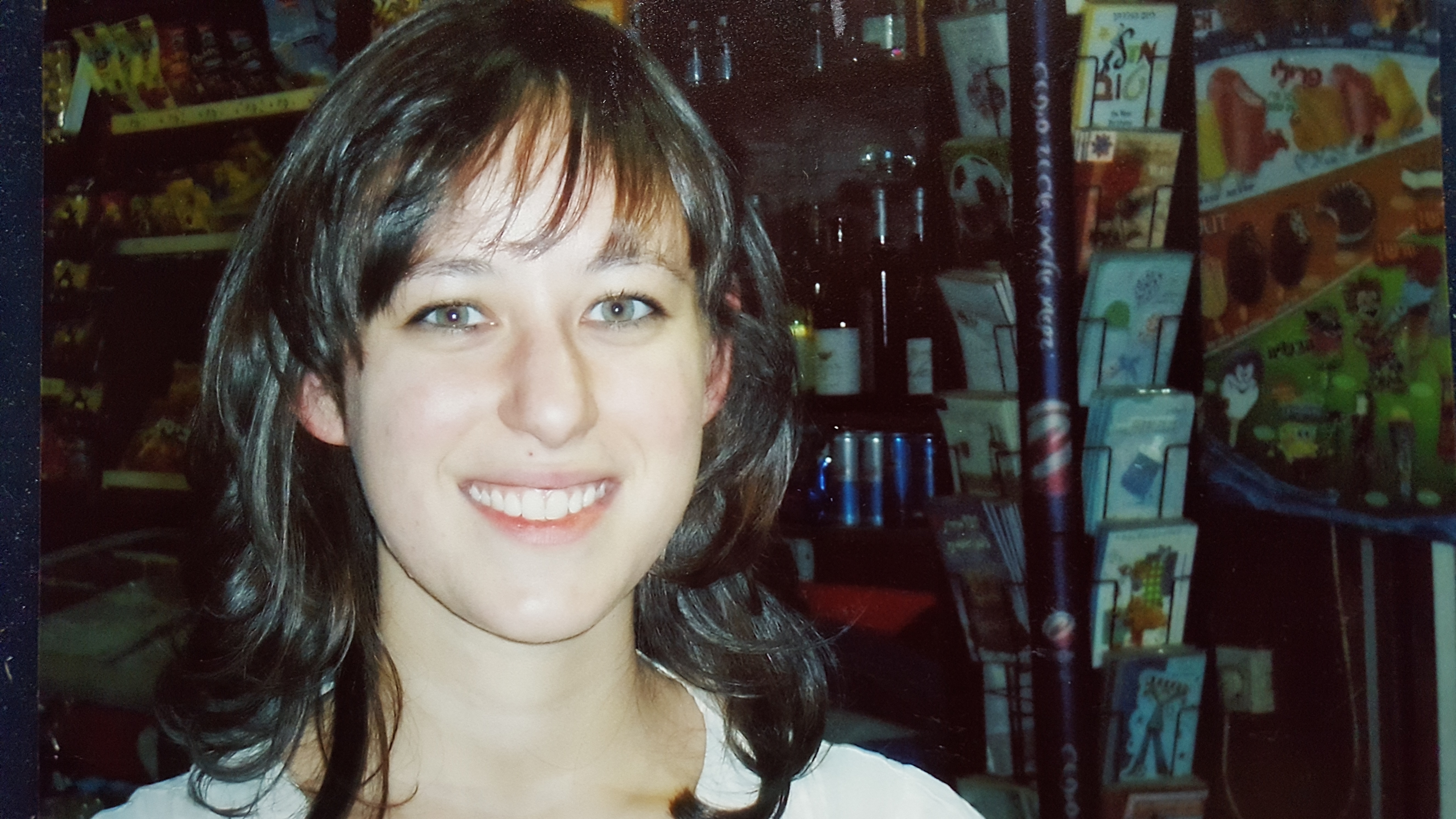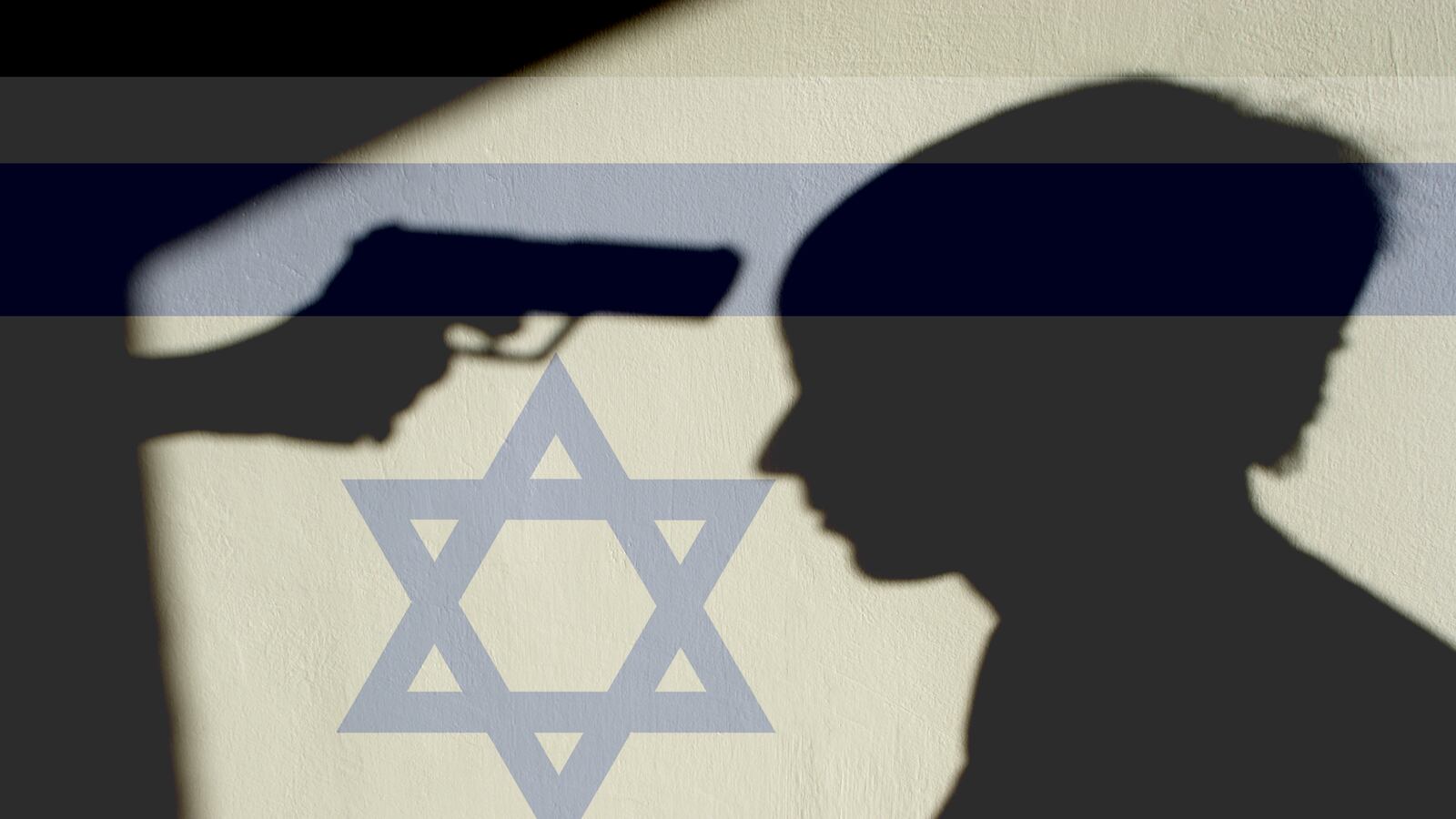The quaint Arab village of Jaljuliya, just 15 miles outside of Tel Aviv, is dotted by lemon and olive trees and the occasional passing of a rickety horse-drawn wagon, but it is also home to some of the most robust underground crime networks in the country, dealing in drugs and illegal weapons and every few years bringing their inter-gang wars onto the streets.
Violent crime is endemic throughout the Arab sector in Israel, where police estimate that close to half a million illegal guns are in circulation. Since 2000, more than 1,000 people have been killed in Israel’s Arab sector, including women murdered in “honor killings,” a revenge act in exchange for women perceived to be behaving sexually improperly.
However, organized-crime networks make the Israeli headlines only in particularly grim cases, such as last year’s murder of a school principal during a staff meeting; or, more frequently, when that violence spills over into mainstream Jewish society, as in the case of the Jan. 1 terror attack at a Tel Aviv pub, in which Neshat Melhelm, an Arab Israeli, shot dead three Israelis—two Jews and an Arab.
“If an Arab kills another Arab, the police don’t care, it’s only when the weapons make their way out of our communities does anyone pay attention,” said Renin Oudeh Shawana, the director of the “Mustaqbal,” or “Future,” a youth program in Jaljuliya. Her relative was one of the two victims in 2007 of killings in the village following a disagreement between two gangs. After the shootings, police came to look for evidence, but never returned to follow up.
As a result of this pattern of police impunity, gangs have become emboldened over the past 20 years, and have increasingly attracted members among the many teenagers in town who “simply have nothing to do, and want to feel that they belong somewhere,” said Oudeh Shawana.
Arab politicians and community leaders have for years pressed the government to rid the communities of their crime rings and illegal weapons inventories, and while Prime Minister Benjamin Netanyahu has acknowledged the lack of law enforcement, he recently shocked many Arab Israelis by blaming the problem on them and their alleged lack of loyalty to the state.
Melhelm, the Tel Aviv shooter, was killed by police in a gunfight in the village of Arara on Jan. 8. So far, it is unclear whether his killing spree was motivated by the ongoing Palestinian uprising, a connection to the so-called Islamic State, mental instability, or perhaps something else altogether. However, the attack spurred many Israelis to fiercely deliberate what punishments should be meted out to Arab Israelis whom they found responsible for his actions, and whom, they said, exhibited ingratitude for the high quality of life they are able to enjoy in Israel.
“Whoever wants to be Israeli must be Israeli all the way… I will not accept two states within Israel,” said Netanyahu following the Tel Aviv attack, referring to division between Israel and its Arab communities, where “there are enclaves without law enforcement, with Islamist propaganda, with plenty of weapons often fired during wedding celebrations, with constant crime.”
The accusation was especially jarring, since it came only three days after Netanyahu’s Likud party announced that it would dedicate a record $4 billion to correct the sector’s severe socioeconomic woes by developing infrastructure, employment, public transportation, and the educational system. Following the attack, Netanyahu promised to beef up police presence in the Arab communities, but said that both proposals would be conditioned on “good behavior”—a phrase widely interpreted, certainly in the Arab community, to mean: It will never happen.
Nonetheless, local leaders continue to work toward reforming policing in a divided Israel, where security forces have tended to see Arabs, including the more than 1.5 million within its borders, as a security threat rather than citizens in need of protection.
Amnon Beeri-Sulitzeanu, co-director of the joint Jewish-Arab NGO the Abraham Fund Initiative that seeks to establish equality in Israel, said that over the past decade there has been incremental success in creating trust and cooperation between the police and the Arab populations. But, he added, there’s still a lot to be done.
“If you measure the number of Arab casualties, it’s less than it used to be, but still there are cases in which the fingers of the police are [quicker on the trigger] when confronting an Arab [assailant], in comparison with a Jewish citizen,” he said.
Securing effective law enforcement is a major focus for Jaljuliya Mayor Fayek Oudeh, who says that over the past 15 years the community has seen thug youths fill the leadership void once occupied by the village’s traditional hamula, or family clan, structures.
“We are citizens of the country, we respect its laws, but at the same time are seeing a new generation that suffers from discrimination and wants more,” Oudeh said. “If Israel would provide us funds that would help our socioeconomic situation, we would be able to prevent the violence and the idea that the young people have no future.”
Arab youths in Israel are coming of age in a tumultuous time, as the Islamic Movement is gaining in influence and popularity in many marginalized areas. And they are answering the call to resist the Israeli occupation alongside their brethren in the West Bank and Gaza. They are frustrated both by daily discrimination by Israeli authorities and by the dashed hopes of a Palestinian state. They are also swayed by arguments circulated by the highly influential Islamic Movement, that the Jews pose a threat to the sacred Temple Mount site in Jerusalem.
As a result, they have participated in the “knife intifada” now in its fourth month, in which mostly young people are repurposing knives, cleavers, and vehicles as non-conventional weapons against civilians and soldiers. More than 93 Arab assailants have been killed by Israeli fire, further incensing those who accuse the Israeli security forces of using excessive violence.
Israel has attempted to confront Arab incitement by banning the Northern Branch of the Islamic Movement, an offshoot of Egypt’s Muslim Brotherhood led by the firebrand Salah Raed, which has called upon the marginalized Arab communities of Israel to “liberate” Jerusalem from Israeli control.
But security experts fear that these latest Israel actions may have driven more radical Arab elements underground, including ISIS supporters, or potential ISIS supporters whose exposure to Islam may now be limited to social networks or individual connections. Israel’s security establishment, which since the war began in 2011 has warily watched from a distance, is now reportedly taking homegrown ISIS elements as a serious threat, in the fear that those who train in Syria or Iraq could return home to carry out attacks on Israeli soil.
In November, the Shin Bet, Israel’s security agency, discovered six residents were planning to join the Islamic State, only a month after a friend of theirs, 23-year-old Nidaal Salah, flew a paraglider over the border into Syria in order to join the fight there.
According to the Shin Bet, 50 Arab Israelis have traveled with their Israeli passports to join the ISIS ranks, many reportedly crossing through transit countries like Turkey.
And while the majority of Arab Israelis condemn ISIS, a 2015 poll conducted by Sammy Smooha, a sociology professor at Haifa University, found that 17 percent of that population believe that ISIS is not an extremist terror organization and that it does not tarnish the reputation of Muslims.
Smooha says that in many Arab communities of Israel, which are generally lacking in youth programs, there is little in the way of educating against ISIS.
As a result, there is a “silent majority of the Arab communities with some sympathy for the organization,” either because of genuine Islamic convictions, or “as a little protest against Israel, which discriminates against them personally and which they see as too dominating in the region.”






